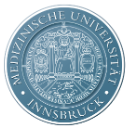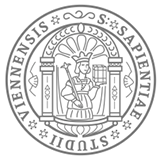Detailed introduction of the University of Graz:
Introduction
The University of Graz is located in Graz, the second largest city in Austria and the capital of Styria. It is the second largest and second oldest university in Austria, second only to the University of Vienna.
Overview
Student size: There are more than 30,000 students, including 1,920 international students.
Faculty: The school has a total of 4,700 faculty members, with strong faculty and excellent teaching quality. Many professors are internationally renowned experts in their respective fields.
History
Founding time: The school was founded in 1585 and its predecessor was the Graz University of Technology.
Important development stage: In 1975, the school was reformed to expand and democratize university courses and management procedures. In 2004, according to Austrian national law, the medical school was separated from the university and became an independent university, namely the Medical University of Graz.
School Strength
Teaching Resources: The school has 6 major colleges, namely the School of Law, the School of Economics and Social Sciences, the School of Humanities, the School of Natural Sciences, the School of Religious Theology, and the School of Environmental, Regional and Educational Sciences. It also has more than 50 research institutes and laboratories, advanced teaching facilities, and a rich library collection, providing students with good learning and research conditions.
Academic Research: The University of Graz has achieved fruitful results in academic research, especially in the fields of economics, sociology, law, physics, chemistry and other disciplines. The school's researchers actively participate in international cooperation projects, have established extensive cooperative relations with universities and research institutions around the world, and have made important contributions to promoting academic progress.
Institutional Nature
The University of Graz is a public university.
Educational Philosophy
The educational philosophy of the University of Graz is "We work for tomorrow", that is, focusing on the future, cultivating students' critical thinking and forward-looking vision, encouraging them to actively face challenges, and providing innovative solutions to future social, economic and environmental problems.
Key laboratories and disciplines
Key disciplines: The School of Economics and Social Sciences is very famous, and 6 Nobel Prize winners have come from the school. In addition, disciplines such as law, philosophy, physics, chemistry, and biology are also strong and have a certain influence internationally. For example, the physics major of the School of Natural Sciences has achieved remarkable results in research directions such as quantum physics and condensed matter physics; the economics major of the School of Economics and Social Sciences has a high level of research and teaching in the fields of macroeconomics and finance.
Key laboratories: The school has a number of advanced scientific research laboratories, such as analytical chemistry laboratories in the field of chemistry and molecular biology laboratories in the field of biology, which provide important platform support for cutting-edge research in related disciplines.
Faculty
The school has six colleges, including the School of Law, the School of Economics and Social Sciences, the School of Medicine, the School of Humanities, the School of Natural Sciences, and the School of Religious Theology. These colleges offer a variety of undergraduate, graduate and doctoral degree programs covering a wide range of subject areas.
Ranking
2022 USNEWS World Ranking: 684
2022 THE World Ranking: 601
2023 QS World Ranking: 671.
Expenses
Tuition fees: Generally speaking, tuition fees are about a few hundred euros per semester, and the specific fees vary depending on the major and degree type.
Living expenses: In Graz, the monthly living expenses are about 800-1200 euros, including expenses for accommodation, food, transportation, entertainment, etc.
Campus
Location and environment: The main campus is located in the center of Graz. The city is the gateway from Central Europe to Southeast Europe and a hub for European cultural convergence. It has a profound cultural heritage and a beautiful natural environment. There are many historical buildings and cultural attractions around it, providing students with a wealth of extracurricular life options.
Architectural style: The campus has a variety of architectural styles, integrating various historical styles such as Renaissance and Baroque with modern architectural elements. The ancient teaching buildings and modern scientific research facilities complement each other, showing the school's long historical heritage and development vitality that keeps pace with the times.
-

Graz University of Technology
-

University of Linz
-

Medical University of Graz
-

University of Leoben
-

Medical University of Vienna
-

St. Pölten University of Applied Sciences
-

Innsbruck Medical University
-

University of Vienna
-

Vienna University of Technology
-

University of Natural Resources and Applied Life Sciences, Vienna
-

Mesoamerican University
-

Istmo University
-

Mariano Galvez University of Guatemala
-

Regional University of Guatemala
-

Galileo University
-

Francisco Marroquín University
-

Rafael Landívar University
-

University of the Valley of Guatemala
-

University of San Carlos of Guatemala
-

Technological Institute of Tlaxcala Plateau
-

Golfo University
-

Technological University of South Sonora
-

Technological University of Huejotzingo
-

Tizimín Institute of Technology
-

Chilpancingo Institute of Technology

